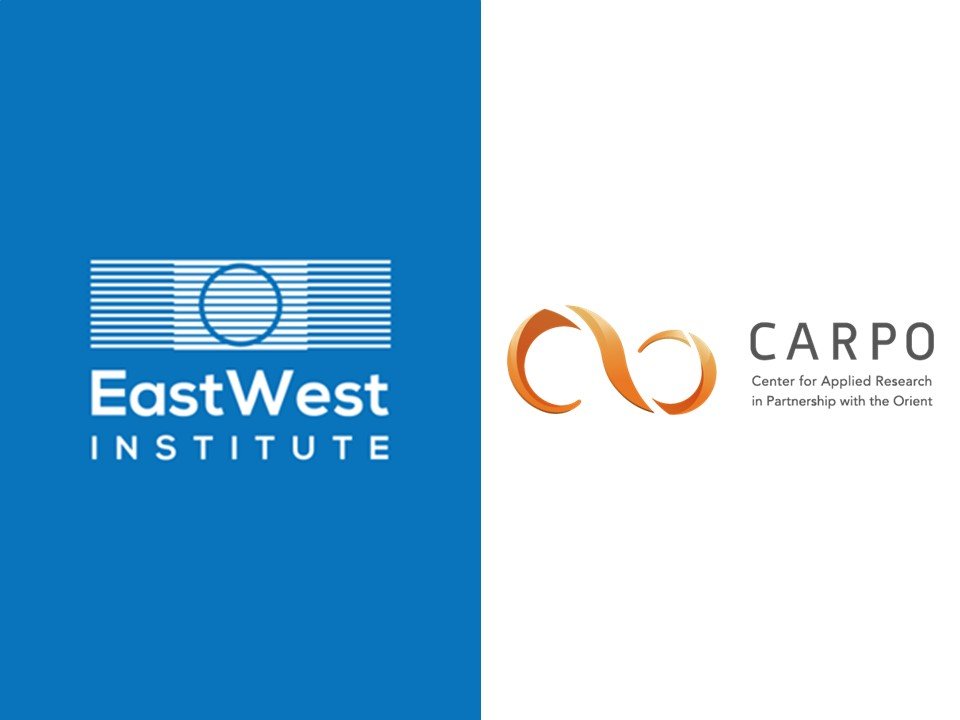
November 17, 2020
On November 17, the EastWest Institute (EWI) and Center for Applied Research in Partnership with the Orient (CARPO) hosted their eighth “Brussels MENA Briefing”—a series of after-work briefings on the Middle East and North Africa (MENA) region—on the recent election of Joe Biden as U.S. president-elect and the changes his administration could bring to both the United States’ own Middle East policy, as well as its transatlantic relations with the European Union (EU) vis-à-vis the Middle East.
Speakers included Cameron Munter, former U.S. ambassador and former president of the EastWest Institute, and James Moran, associate senior fellow at the Center for European Policy Studies (CEPS). The discussion was moderated by Wael Abdul-Shafi, EWI MENA program associate.
Biden’s election was received with a huge sigh of relief by the international community, including in Europe. The speakers stated that a Biden administration will likely make efforts to re-establish relations with traditional allies, while rebuilding the damage done under Trump’s “America First” policy.
As the experts noted, Biden’s strategy in the Middle East will probably be restorative rather than innovative. Preoccupation with national issues, such as the COVID-19 pandemic, as well as an unwillingness by the American public to support strong military interventions in the Middle East, will most probably lead to a decreased role abroad for the U.S. military. Instead, Biden will likely emphasize his support for a multilateral approach to the region, one speaker suggested. It is therefore expected that one of his priorities will be reinstalling the Joint Comprehensive Plan of Action (JCPOA). Although, as pointed to by one speaker, the question of Iran’s willingness to rejoin remains to be seen.
The speakers mentioned that the most daunting challenge facing Biden’s administration is to reevaluate and determine U.S. foreign policy towards Israel and Turkey. Although the discussants elaborated that while Israel will remain a strong ally of the U.S., Biden will also be willing to deal with the UAE and Bahrain—likely giving more attention to the Palestinian case, for example, by reviving U.S. aid to Palestinians in the West Bank and Gaza. Considering Turkey, both speakers foresee the need for a delicate balancing act and close coordination between the EU and the U.S., as Turkey plays an important role in the EU’s migration policy, and the Eastern Mediterranean crises remains unresolved.
During the briefing, Biden was also predicted to take on a tougher stance towards specific Gulf countries, emphasizing a concern for the protection of human rights and democracy. This focus would also affect Egypt, one of the experts explained, where President Sisi could be encouraged to give more space to civil society. One speaker suggested that the U.S. might be able to play an important role in Yemen, where, by working together with the EU within the context of the UN-led peace efforts, it could achieve some sort of breakthrough without upsetting other major players on the international scene, such as Russia.
Although the Biden administration was received with much optimism in the EU, a word of caution is in order according to one discussant, as a democratic administration will need some time to develop and move ahead with its initiatives. Therefore, it is important for the EU to develop a degree of strategic autonomy. One speaker added that the U.S. will need to adapt to a European continent that has changed. With Britain having left the EU, the U.S. can no longer rely on its traditional ally. Rather, it will need to invest in relations with member states such as France and Germany, who have their own views on the Middle East.
That being said, the EU will see some familiar faces in the new administration from the Obama presidency. The two speakers concluded on a hopeful note, stating that this offers the possibility of fruitful cooperation in the Middle East in the four years to come.
Desirée Custers, MENA Briefing